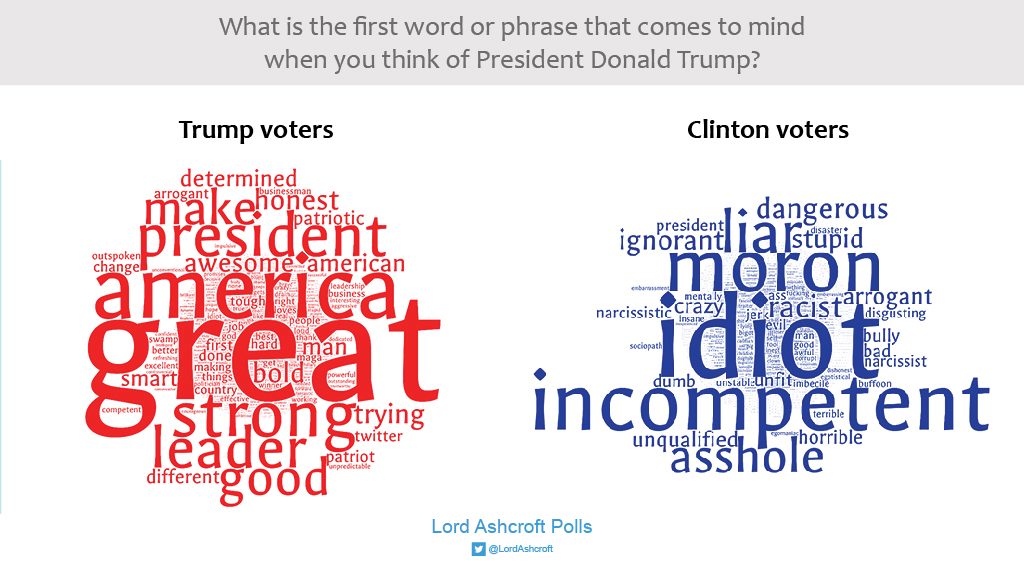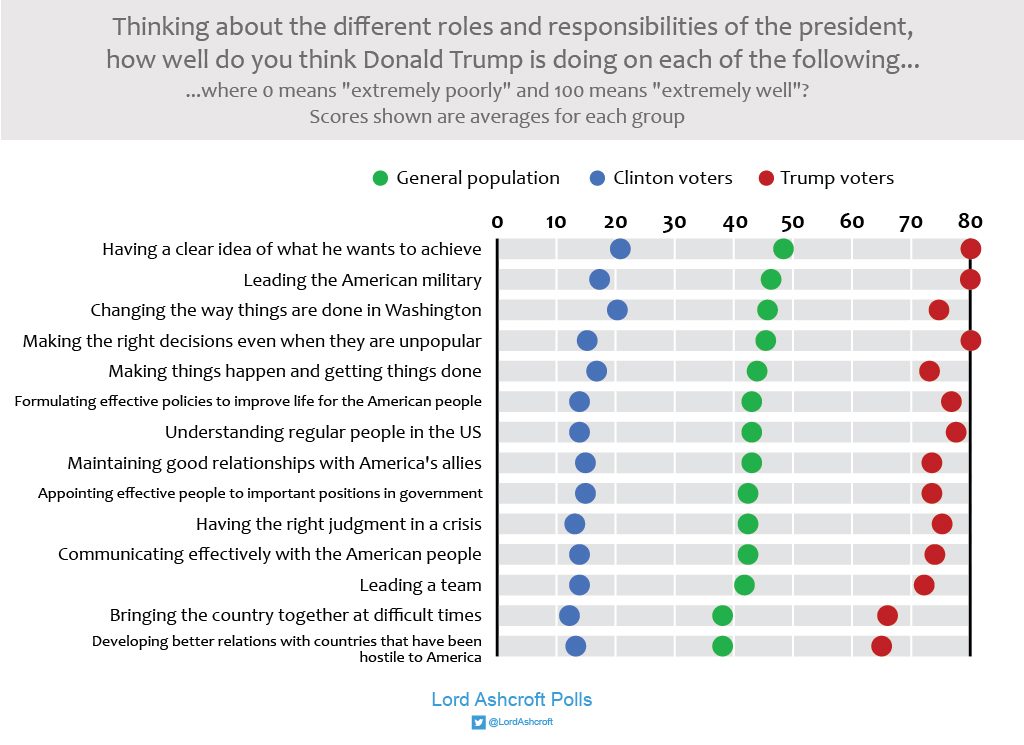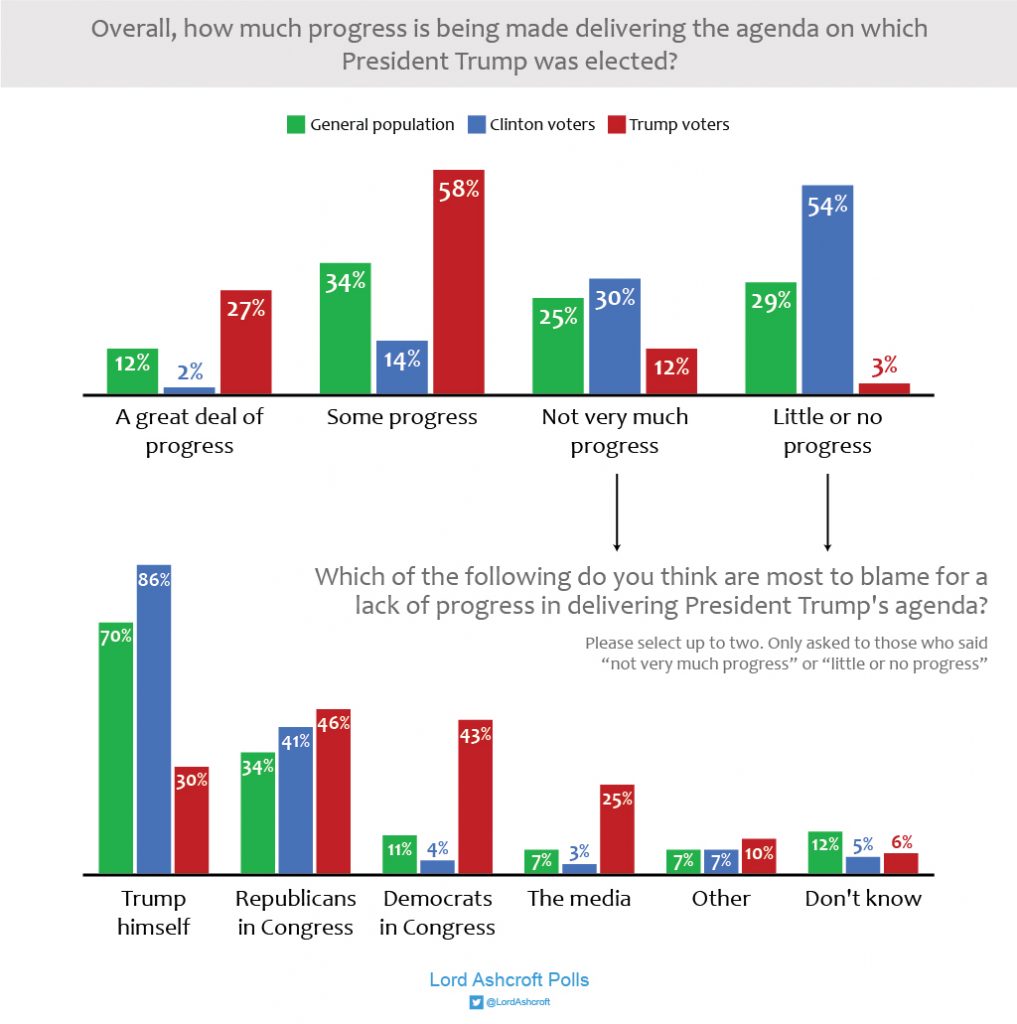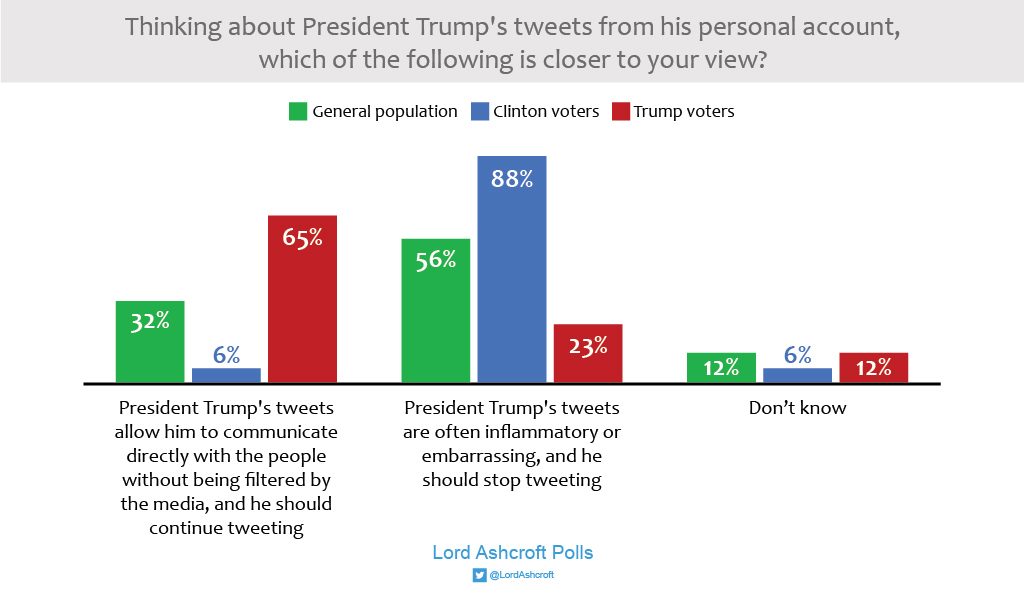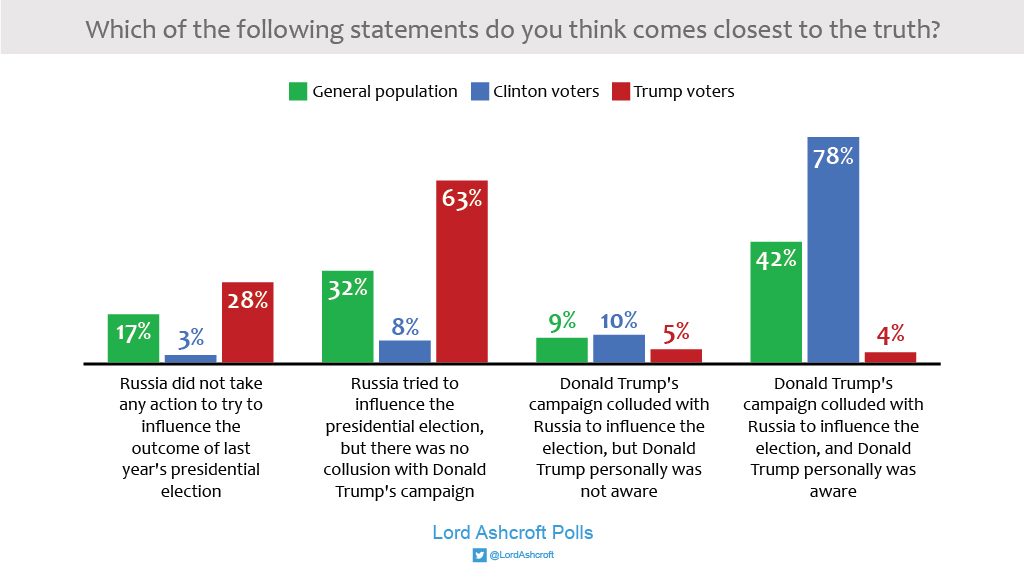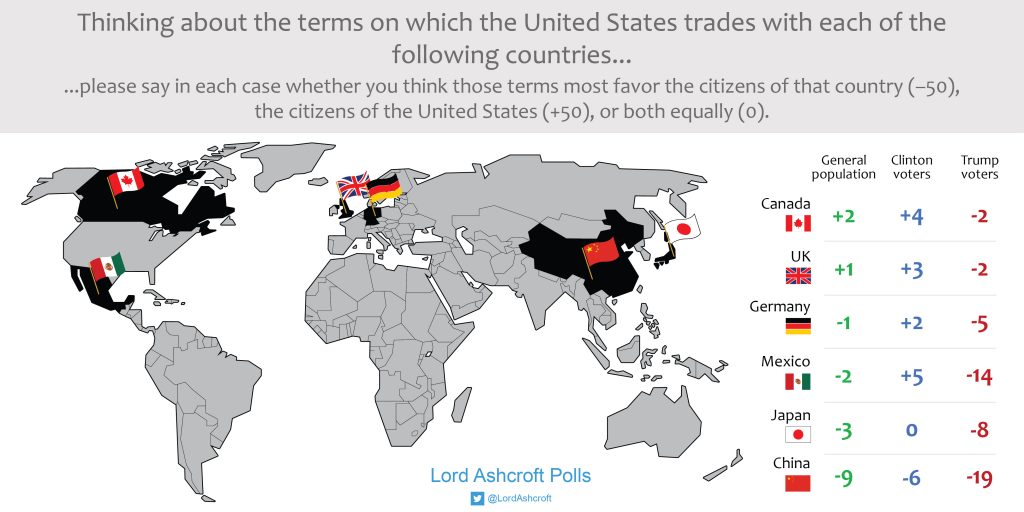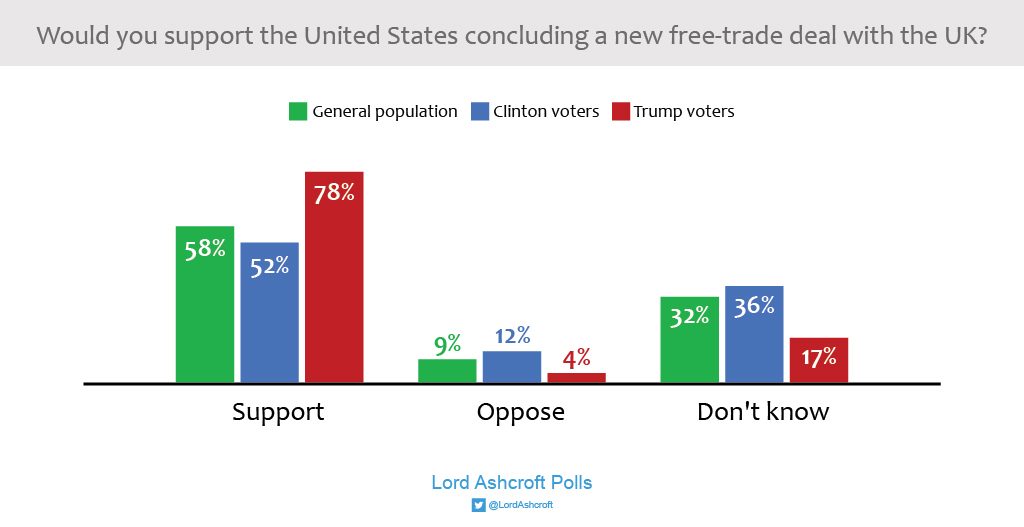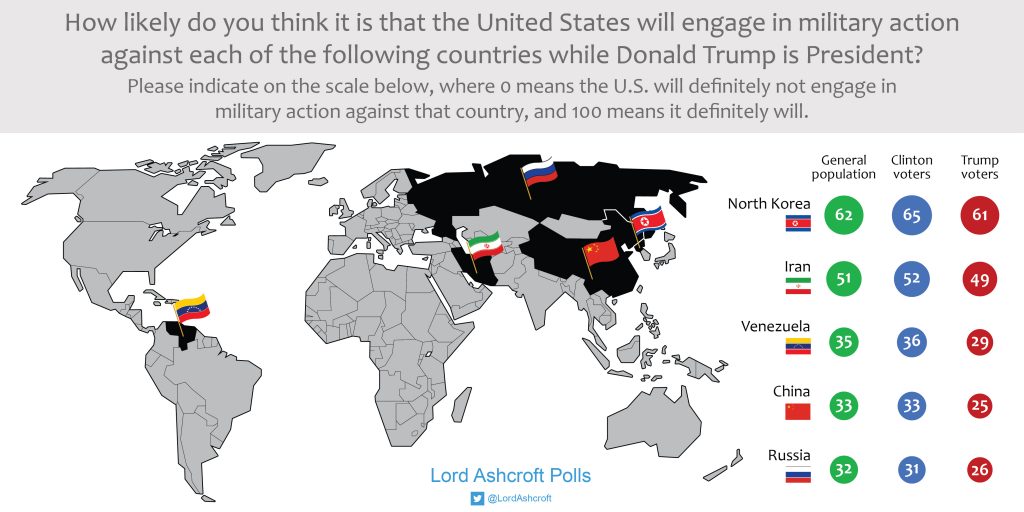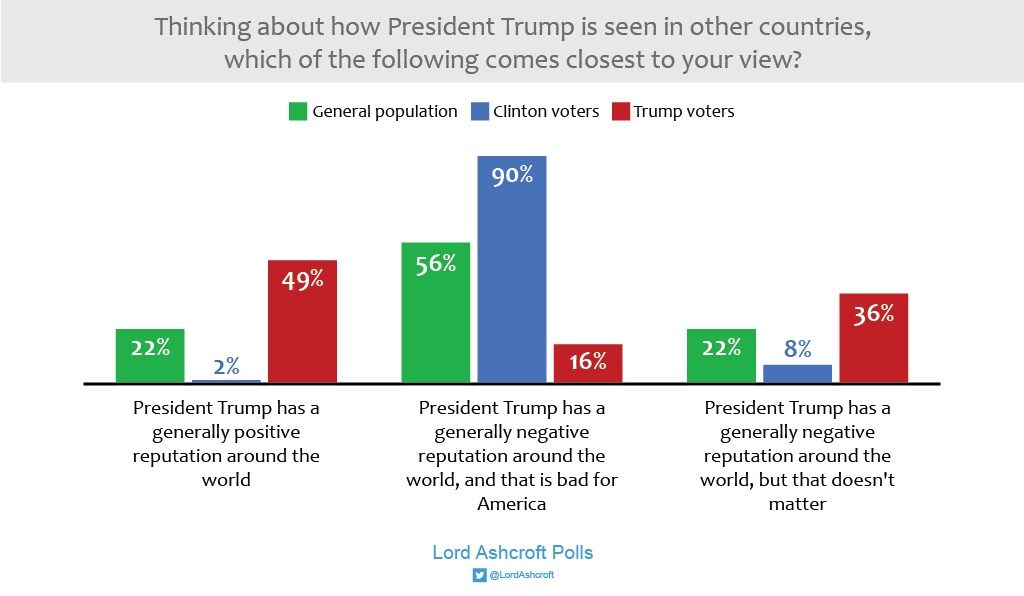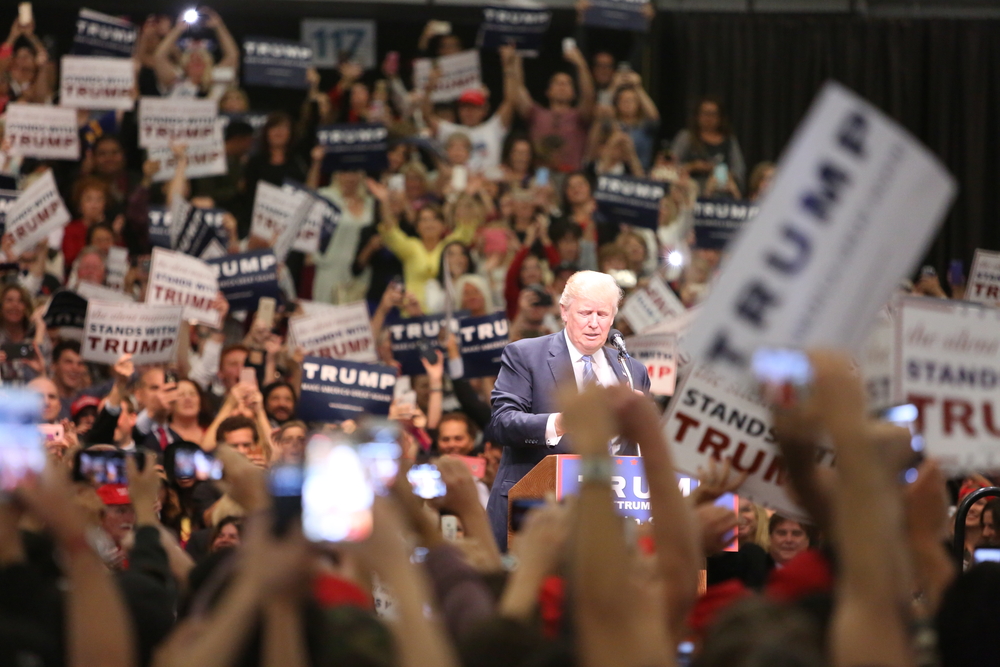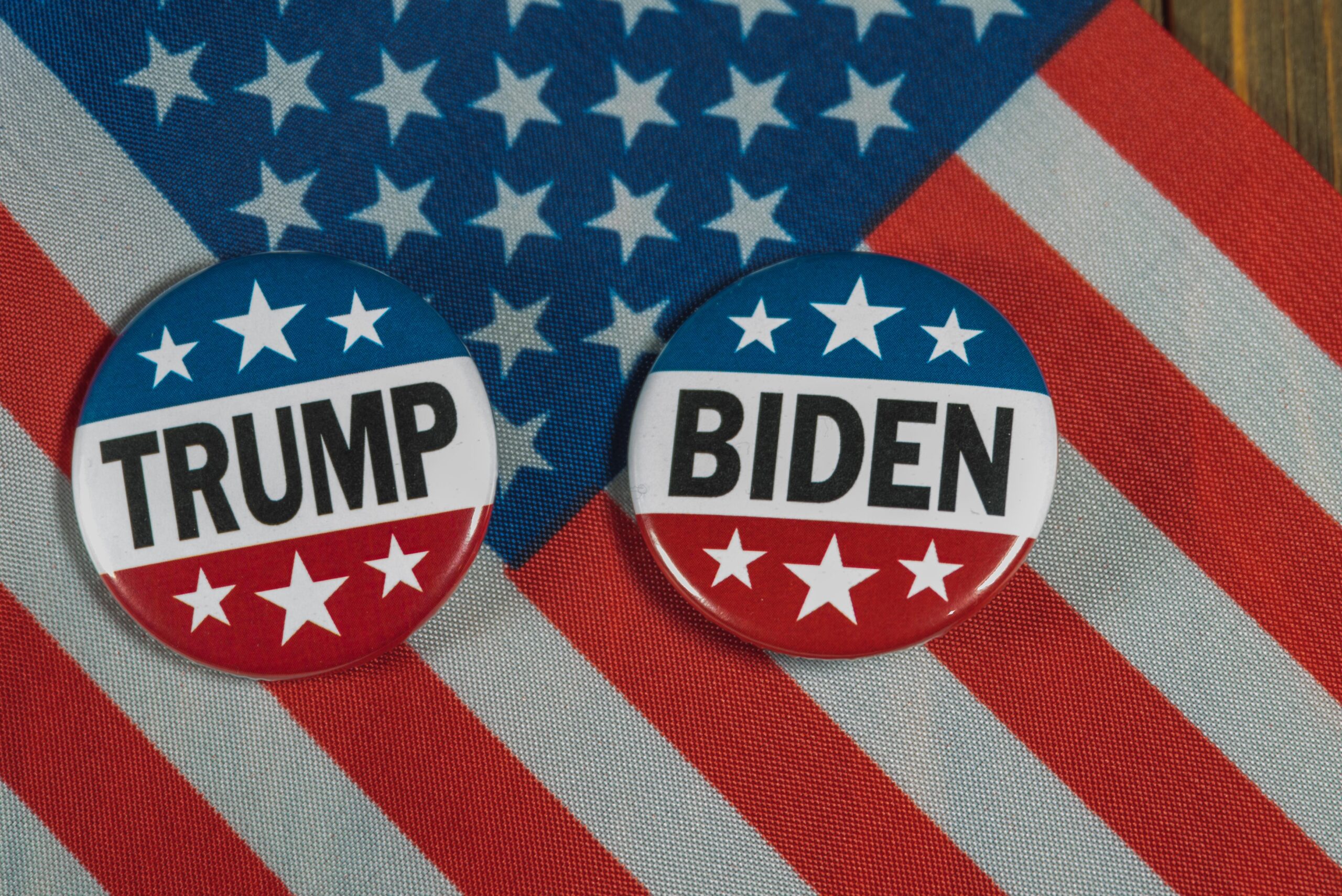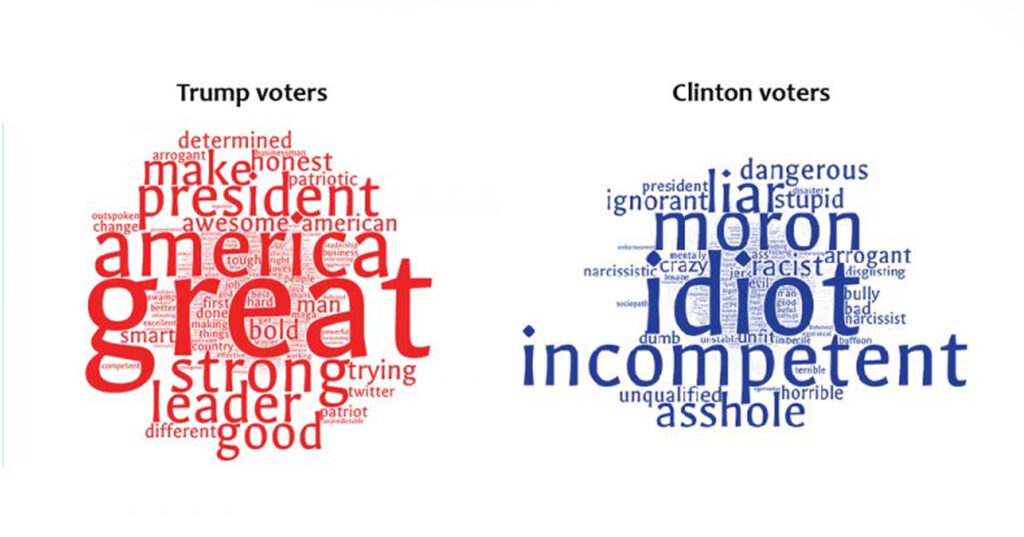
Last week I wrote about how American voters – particularly the ones who supported Donald Trump last November – thought he was doing a year after they elected him to the White House. (You can hear them in their own words in the latest Ashcroft In America podcast). My new polling on how Americans see their President and some of the controversies that surround him completes the picture.
Despite the perpetual furore that surrounds President Trump, the vast majority of those who voted for him remain happy with their decision. Those who chose him positively, rather than as the lesser of two evils, are especially sure they made the right choice. On the other side of the equation, so are those who voted for Hillary Clinton. Not surprisingly, then, the country remains sharply divided as to the merits of its leader – a division that could hardly be missed when we asked our 13,500 respondents what word or phrase first came to mind when they thought of him.
The response from Clinton voters is predictable enough – as they themselves often told us in our focus groups, he is the same Donald Trump they voted against a year ago. They remain as scornful as they ever were.
It is striking, though, how positive the President’s own voters remain about him. This is reflected elsewhere in the poll, as it was in the focus groups I reported last week. They give him high marks for all aspects of the job, especially “having a clear idea of what he wants to achieve,” “leading the American military,” “making the right decisions even when they are unpopular” and “understanding regular people in the United States.”
He receives slightly lower (though still high) marks for “making things happen and getting things done”, the area in which Trump voters had the highest expectations shortly before he took office in January.
This reflects a degree of frustration that change is not happening as rapidly as some people hoped and expected. Only just over a quarter of those who voted for Trump think “a great deal” of progress is being made in delivering his agenda (though more than half say there has been “some progress”).
But while the great majority of Americans who think little headway is being made blame Trump himself, those who voted for the President are most likely to blame Republicans in Congress for holding up his agenda. Only three in ten of them see Trump himself as the main culprit; almost as many blame the media.
One of the most controversial aspects of the Trump presidency – or at least, one of the most effective ways in which he likes to stoke controversy – is his use of Twitter. More than half of voters overall, and nearly nine in ten of those who voted for Clinton, agree that the President’s tweets “are often inflammatory or embarrassing, and he should stop tweeting”. Less than a quarter of Trump voters take this view; two thirds think his tweets “allow him to communicate directly with the people without being filtered by the media, and he should continue tweeting”. This reflects widespread distrust in the reliability of news reported by established media outlets – though many Trump supporters in our groups said they sometimes wished he would choose his words and subjects more carefully.
On the investigation into ties between the Trump team and the Russians, four in ten Americans overall – and nearly eight in ten of those who voted for Clinton – think his campaign “colluded with Russia to influence the election, and Donald Trump personally was aware”. Nearly two thirds of those who voted for the President believe Russia tried to influence the election, but that there was no collusion with the Trump campaign; most of the remainder do not believe Russia interfered in the election at all.
Asked what they think about the terms on which the United States trades with other countries – another of President Trump’s regular themes – Americans as a whole say their trading arrangements seem more or less equally advantageous to themselves and their partners in the case of Canada, the UK, Germany, Mexico and Japan (though they believe China does slightly better out of US-China trade than the United States itself). Democrats see America’s trading relationships in a more positive light, while Trump voters think all five countries benefit from trade more than the US – marginally, in the case of Canada and the UK, and significantly in the case of Mexico and China.
Despite this, Trump voters were the most enthusiastic of all about the idea of a potential new free-trade deal with the UK once Brexit is complete.
We asked Americans how likely they thought it was that the US would take military action against a number of countries during the Trump presidency. In the case of North Korea, people of all political persuasions tend to see action as more likely than not – overall, they rated the chances at 62/100. People also thought there was a roughly even chance of President Trump using force against Iran.
Finally, we asked Americans how they thought President Trump was seen in other countries. More than half of our sample, and nine in ten of those who voted for Clinton, think Trump has a generally negative reputation around the world, and that this is bad for America.
Trump voters themselves take a rather different view. Around half believe his international reputation is positive; most of the rest agree “President Trump has a generally negative reputation around the world, but that doesn’t matter.”
